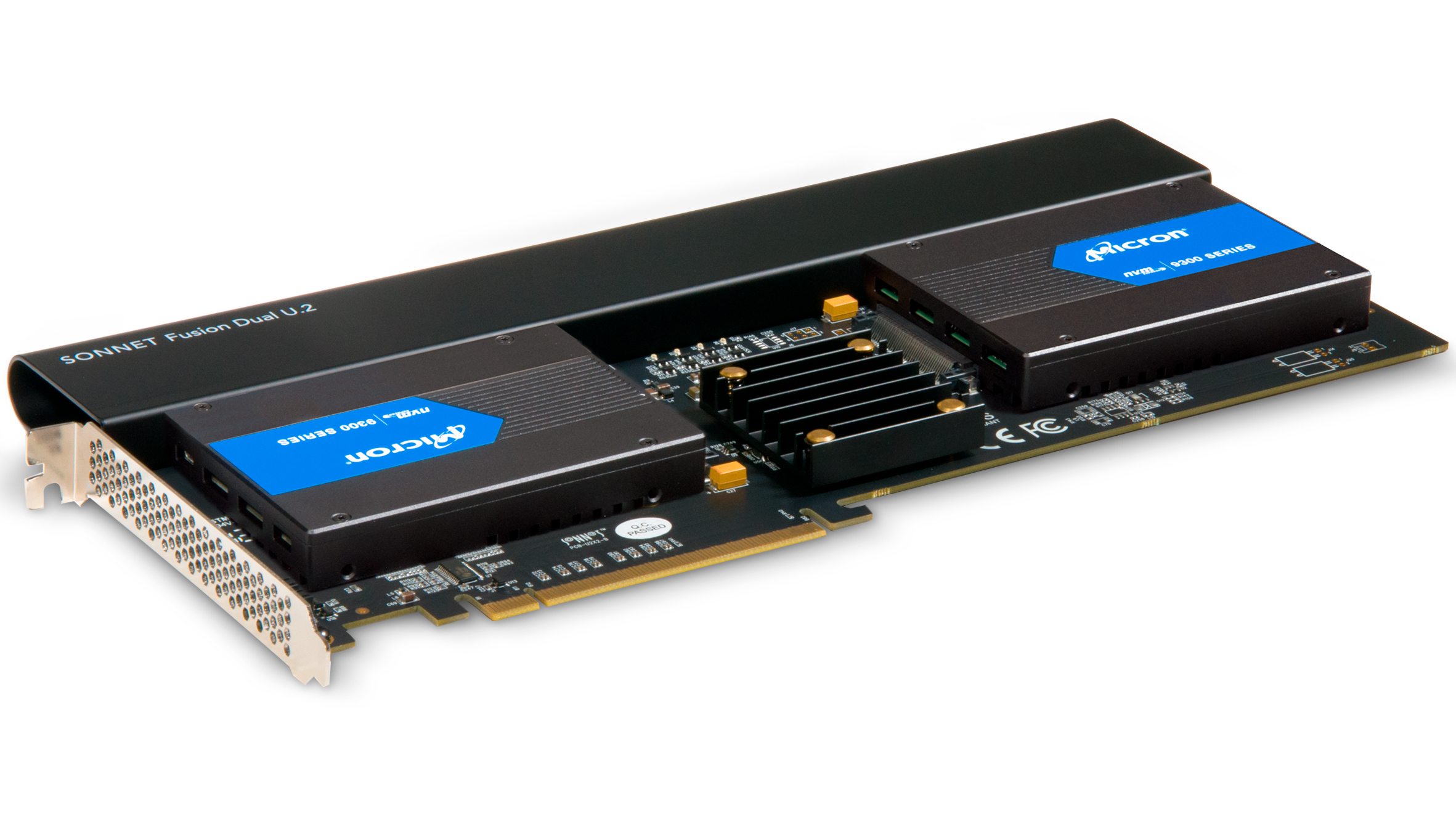Sonnet's New PCIe 3.0 Adapter Card Provides a Nice Home for Dual U.2 SSDs
There aren't many U.2 SSD fans in the hardware world, but if you need to put two U.2 drives in a RAID array, Sonnet has you covered. The company just announced its Fusion Dual U.2 SSD PCIe card for $199.99.
The Fusion Dual U.2 SSD PCIe card comes in a full-length PCIe form factor. It dwells on a conventional PCIe 3.0 16 interface; however, the adapter is wired x8 electrically.
Additionally, the card has what Sonnet calls a PCIe bridge where it distributes four PCIe 3.0 lanes for each U.2 SSD. As a result, PCIe bifurcation on the motherboard isn't needed.
Of course, the performance that you get out of the Fusion Dual U.2 SSD PCIe card is dependent on the brand and model of the U.2 SSDs that you have installed on the adapter. The best SSDs will obviously perform better. In Sonnet's own tests, which we should take with a grain of salt, the manufacturer managed to squeeze sustained read and write speeds up to 6,250 MBps and 6,000 MBps, respectively, out of a pair of Micron 9300 7.68TB drives in RAID 0 array. The numbers seem underwhelming when compared to the fastest PCIe 4.0 SSD, but the Fusion Dual U.2 SSD PCIe card's real appeal resides in the possibility to house two high-capacity U.2 drives in a single place.
The Fusion Dual U.2 SSD PCIe card supports RAID 0 and 1 array configurations and Self-Monitoring, analysis and reporting technology data reporting. It's compatible with various operating systems, including macOS, Windows and Linux. Therefore, you can use it in PCs, Macs and Thunderbolt 3 expansion systems.
Sonnet backs the Fusion Dual U.2 SSD PCIe card with a limited two-year warranty and offers free lifetime customer technical support.
The adapter is currently available on Sonnet's online store.
Get Tom's Hardware's best news and in-depth reviews, straight to your inbox.

Zhiye Liu is a news editor, memory reviewer, and SSD tester at Tom’s Hardware. Although he loves everything that’s hardware, he has a soft spot for CPUs, GPUs, and RAM.
